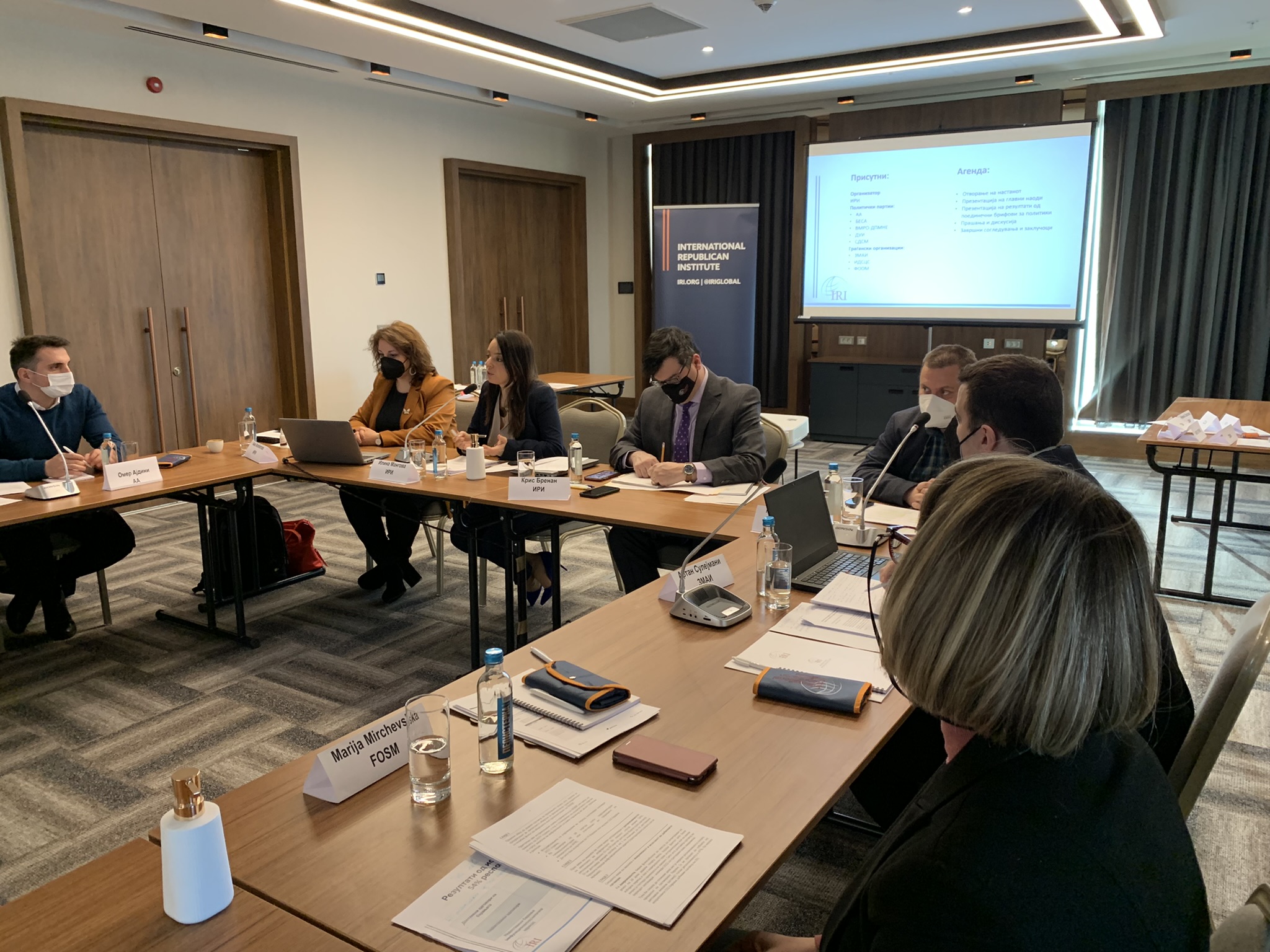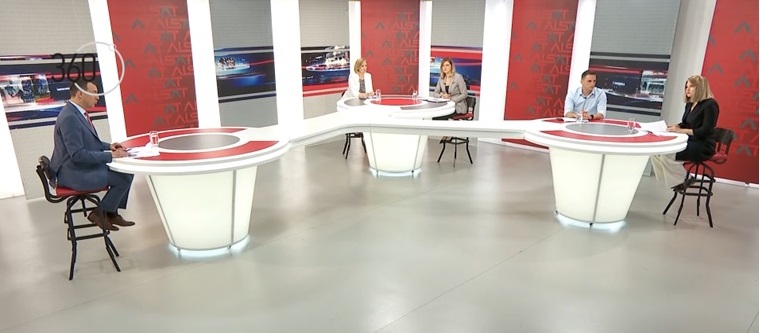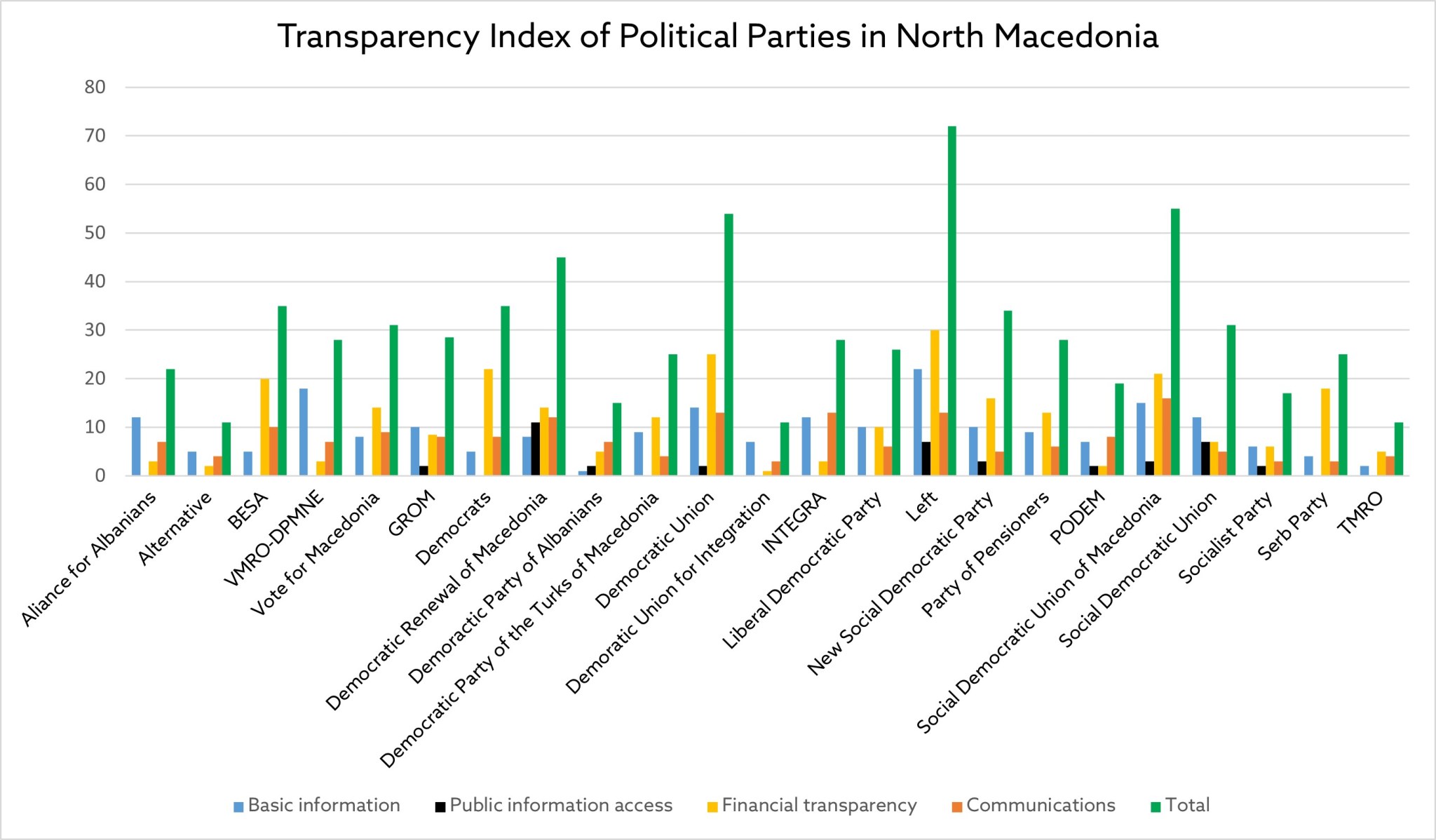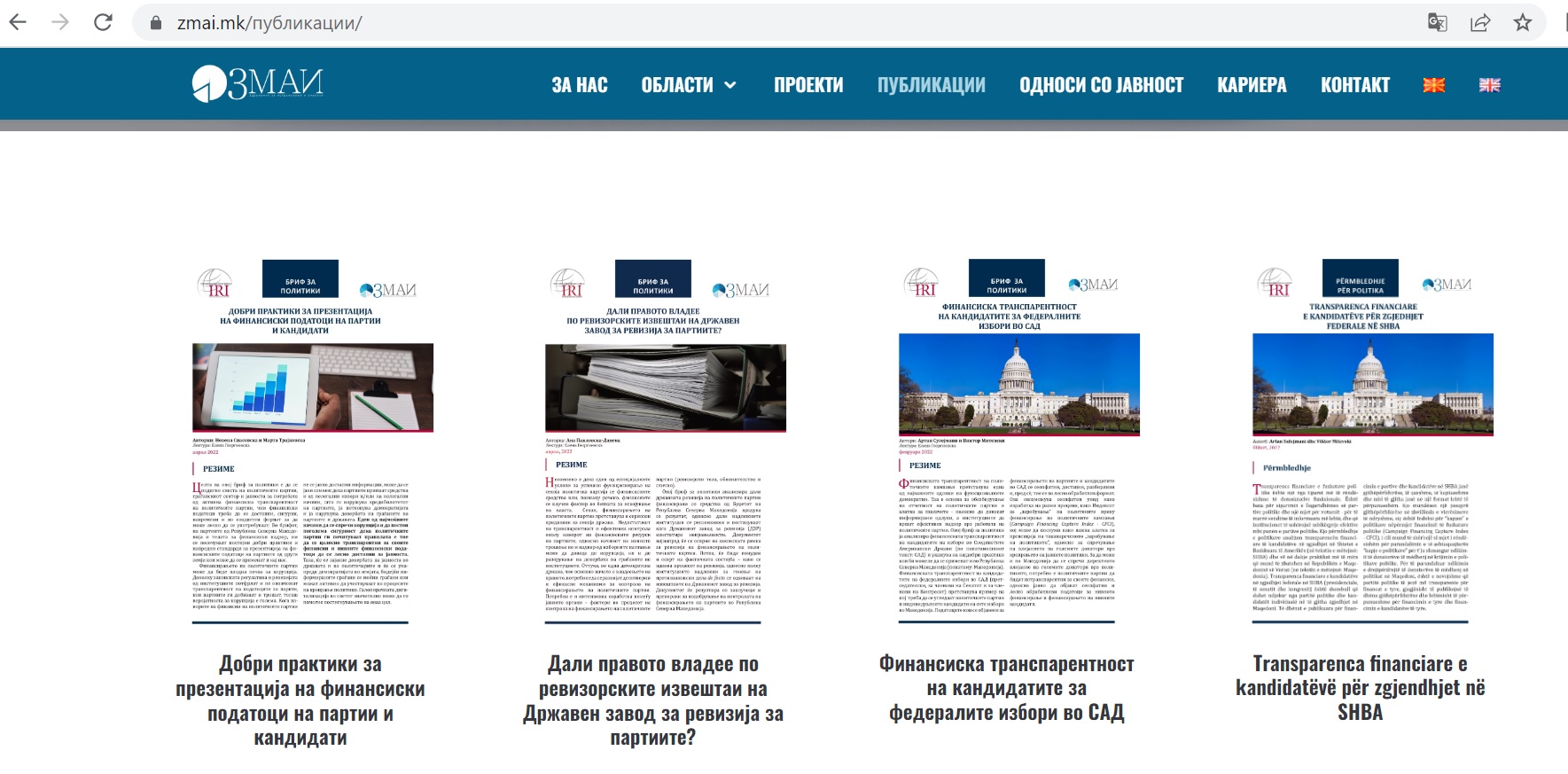Supporting Good Governance in North Macedonia by Boosting Parties’ Financial Transparency: What Steps Should Be Taken?

Financial transparency of political parties is one of the key anticorruption mechanisms that can enhance trust in political parties, which in North Macedonia remains persistently low. According to the International Republican Institute’s (IRI) 2022 Western Balkans regional survey 73% of adults in North Macedonia somewhat distrust or distrust the parties a great deal. If parties adhere to the laws and if they are transparent on how they receive and spend money, the citizens will be assured that the parties are honest when it comes to money. In a March 2022 poll, IRI found that 69% of adults think parties are not transparent about what they do with the money they receive from the state budget. Furthermore, 48% were not able to name the range and 33% named an incorrected range when asked about the amount of the state budget allocated annually to finance political parties.
Aiming to assist parties in boosting their financial transparency capacities, IRI and civil society partners—Association for Research and Analyzes (ZMAI), Foundation Open Society – Macedonia (FOSM) and Institute for Democracy “Societas Civilis” – Skopje (IDSCS)—researched financial transparency standards in Western democracies and parties’ financing and financial transparency practices in North Macedonia. From February to June 2022, IRI and partners conducted a public awareness campaign on parties’ financial transparency by publishing and disseminating the findings and recommendations through nine policy studies and eight advocacy videos in Macedonian and Albanian languages. Here are the main recommendations:

- The parties should develop their websites and make their public financial data accessible.
No political party was found to be “excellent” or “very good” in FOSM’s Transparency Index of Political Parties in North Macedonia that measures whether parties proactively, independently, and regularly publish information on their websites. Parties should boost their transparency by publishing all their legally required financial documents (financial reports, annual account balance, donations’ reports, and donation registry). Also, the authors recommend the creation of a single database managed by a state institution where all reports on income and expenditure of political parties can be searched by year, election cycle, and political party.

- The parties and competent state institutions should publish comprehensive party financial data digitally, in a timely manner, and in an open and protected format.
If the parties and competent state institutions monitoring parties’ work publish financial data on time, in an open and protected format, this will help citizens make better informed decisions on whom to support. Having open data, citizens, media, civil society organizations (CSOs), and experts will be able to use the data to compare financial reports from different parties, for example, or to analyze the financial operations of a particular party throughout the years. In the policy brief “Financial Transparency of Federal Election Candidates in the U.S.,” think-tank ZMAI presents the U.S. Federal Election Commission (FEC)’s website as a good example that can be replicated in North Macedonia. ZMAI points out that FEC publishes comprehensive, timely, and easy to use financial data of the parties and candidates in a protected format.
- The parties should introduce efficient internal oversight of their financial operations, while the competent institutions should monitor their work more effectively.
IDSCS notes that parties who nurture a culture that promotes accountability to members and establish independent and efficient mechanisms of internal control are more trusted by the members and the public. The parties should have professional internal accounting practices which will ensure party funds are used properly, parties comply with financial regulations, and financial reporting is reliable. This evidence is presented in the policy brief “Best European Practices for Monitoring and Control of Political Parties’ Finances,” where IDSCS finds that besides internal oversight, oversight by competent institutions should be strengthened.

IRI will continue to support the capacity-building endeavors of the political parties in the financial transparency field as well as to assist them to fulfill their vital role in democracy.
Top